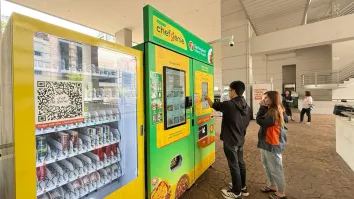
How can technology address food wastage challenge in India’s foodservice industry?
Analysts say leveraging tech can help with food wastage whilst promoting sustainability.
With food wastage a critical challenge for India’s foodservice industry, leveraging technology offers a dual advantage by mitigating food waste and promoting sustainable practices, thereby enhancing efficiency and supporting long-term industry growth, analysts from GlobalData said.
Parthasaradhi Reddy Bokkala, Lead Consumer Analyst at GlobalData, said that many restaurants struggle with operational inefficiencies that lead to excess food preparation. This includes challenges in accurately predicting customer demand, which can result in over-preparation of meals that ultimately go uneaten. Moreover, small- and medium-sized restaurants often have limited resources and experience, making it difficult for them to negotiate with vendors for better pricing or to find quality services that can aid in waste reduction.
“In addition, financial challenges are particularly acute for smaller eateries, which often lack the capital to invest in waste-reduction systems or processes. Additionally, the dynamics of the food delivery market, such as shifting consumer preferences, create challenges in maintaining predictable and efficient inventory management,” Bokkala said.
This unpredictability often results in food waste as restaurants may prepare items that do not sell. Given the increasing oversight by the Food Safety and Standards Authority of India (FSSAI), restaurants face a daunting task to minimise wastage and losses.
Francis Gabriel Godad, Consumer Business Development Manager at GlobalData pointed out that the evolution of technology has ensured that even smaller outlets can benefit from it.
“For instance, Zomato launched a new initiative, Food Rescue, which will help restaurants address the challenge of food wastage to some extent. This initiative allows customers living near restaurants to purchase these cancelled food orders at significantly reduced prices. The feature not only helps in minimizing food waste but also provides an economical option for consumers, thereby contributing to a more sustainable food delivery model,” Godad
The initiative will appeal to eco-conscious consumers who have set sustainability values and tend to favour businesses that align with their views. This is reflected in a GlobalData 2024 Q3 Consumer Survey*, wherein 39% of respondents opined that a business’s "sustainable / environmentally-friendly" credentials are essential when deciding to purchase or ordering from that business.























